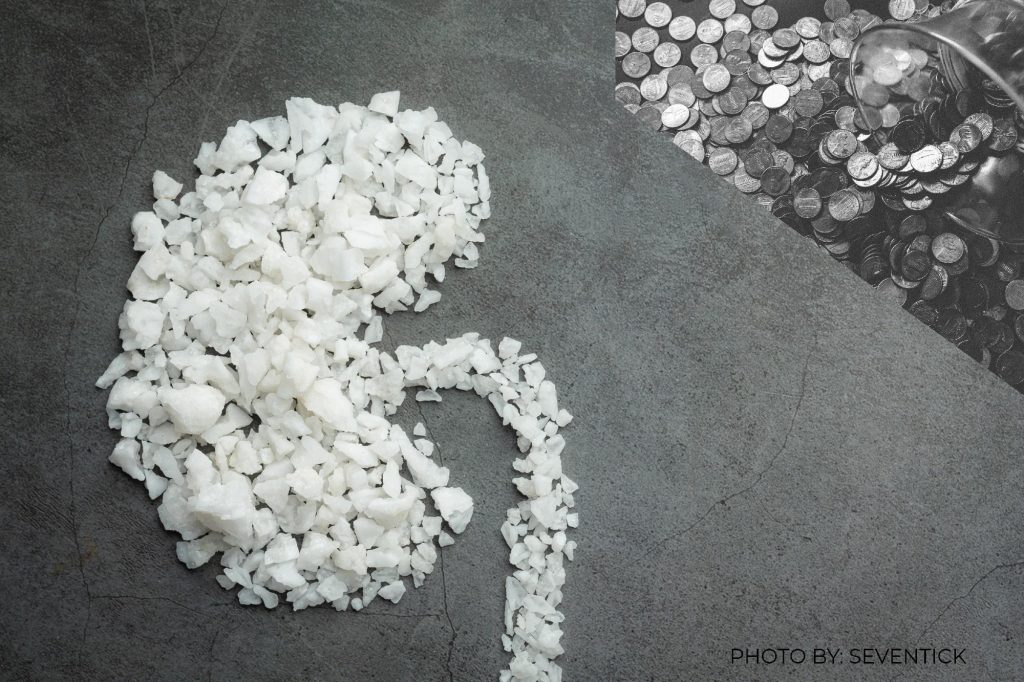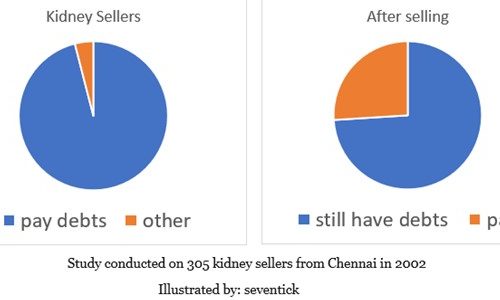
Selling organs to survive
Crushing poverty all around the world is forcing starving displaced people to make desperate choices. The peak in human organs selling and trafficking is a record, but there are several factors surrounding the cause of it and before we begin with discovering few of them, lets first address some common questions regarding the selling and buying of human organs. An alarming surge in
renal diseases, diabetes and high blood pressure is driving the global demand for kidneys, which greatly exceeds supply. The near-universal ban on the sale of human organs, coupled with a widespread reluctance in many cultures to donate kidneys even after death, means that patients often must spend years hooked up to dialysis machines – unless they can find a willing donor.
Can I sell an organ?
The short answer is no, although you may be fairly compensated for some costs related to your donation.
Reimbursement for Donating an Organ?
While you may not sell an organ, you may have some of your expenses related to the donation procedure reimbursed. For example, you may claim medical costs and missed pay following the donation of an organ.

Can I buy an organ?
No, you can’t legally buy (or sell) an organ. But you and your loved ones do have options for getting the medical attention you need. If you have legal concerns about procuring or donating an organ, or other health care law questions, you should speak with an experienced health care attorney near you.
Which organs and tissues can be donated after death?
Kidneys, lungs, corneas, livers, pancreases, heart valves, bones, tendons, skin, and bone marrow can all be transplanted. If desired, a donor can specify on a donor card which organs and tissues are to be donated.
Laws in Pakistan for selling or buying organs?
No donor and no person empowered to give authority for removal of any human organ shall authorize the removal of any human organ for any purpose other than the therapeutic purposes.
Real world scenario:
According to the World Health Organization (WHO), South Asia is now the leading transplant tourism hub globally, with India among the top kidney exporters. Each year more than 2,000 Indians sell their kidneys, with many of them going to foreigners. The gaping hole between demand and the legal supply of kidneys is being filled by what may be the world’s biggest black market for organs, which crisscrosses India, Nepal, Bangladesh, Pakistan, Sri Lanka and Iran.
The story of one kidney village:
A village in the western area of Herat, Afghanistan almost all the inhabitants have sold their kidneys to temporarily tackle the financial crisis. Dozens of residents there have sold their organs after word spread among destitute families of the money to be made. There include a 19-year-old girl name “Shakila” who sold her organ for 1500$, to pay off debts and but food for her two children. [1]
Pakistan’s organ bazaar:
From the bottom of society, right up to the top, everyone is involved: the poor donors who are willing to donate a kidney in return for some quick cash to either pay of debts or support their family, the brokers who exploit the impoverished into selling their organs, the rich foreign recipients who travel to Pakistan for a transplant, the surgeons who cut through the ethics of the medical profession and retrieve kidneys, and the powers that facilitate and protect this illegal business. Everyone wants a piece of the pie.[2] There is an argument against criminalizing organ trade which calls for regulating the business through strict guidelines because in the end, both vendor and recipient gain something.
Iran, a legal market for the organs:
In fact, Iran offers people a legal way to sell their kidneys — and is the only country in the world to do so. A government foundation registers buyers and sellers, matches them up and sets a fixed price of $4,600 per organ. Since 1993, doctors in Iran have performed more than 30,000 kidney transplants this way. Iranian authorities say their system gives poor people a relatively safe way to make some money while saving lives, keeping surgery costs low and reducing transplant waiting times in a country where, until recently, few organs were harvested from people who died.
According to the World Health Organization (WHO), South Asia is now the leading transplant tourism hub globally, with India among the top kidney exporters. Each year more than 2,000 Indians sell their kidneys, with many of them going to foreigners
Kidney racket in India:
Among paid donors in India, selling a kidney does not lead to a long-term economic benefit and may be associated with a decline in health. Physicians and policy makers should reexamine the value of using financial incentives to increase the supply of organs for transplantation.
Compared with long-term dialysis, renal transplantation generally offers a longer life span and a better quality of life.1,2 However, nearly every country has a shortage of kidneys for transplantation. In the United States, 50 000 individuals are waiting for kidney transplantation, yet only 15 000 kidneys are transplanted annually.3 The shortage is even more severe in developing countries. Despite India’s having 4 times the population of the United States, Indian physicians transplant fewer than 4000 kidneys annually, and a number of the organs are received by non-Indians.
Responsible solutions
The WHO estimates only 10% of global needs for organ transplantation are currently met. Some commentators suggest that the only way to meet needs and to eliminate the black market is to establish legal markets, at least for kidneys.
Others argue that legalization will simply relocate the problems of existing markets and expand the trade.
The WHO and supporters of the Declaration of Istanbul believe the best solution involves:
- developing better systems of deceased organ donation.
- encouraging altruistic living kidney donation.
- preventing needs for transplantation by treating diseases that lead to organ failure such as diabetes and hepatitis.
- implementing laws that prohibit organ trading and trafficking.
To achieve these goals, countries must take responsibility for meeting their own transplant needs by pursuing self-sufficiency.
Australia has made valuable progress in recent years with the creation of the Organ and Tissue Authority and the work of the Donate Life Network, and the introduction this week of legislation criminalizing organ trafficking.
In addition to focusing on the health of our own citizens and discouraging Australian involvement in the global market, we can curb the market by helping to address the extreme poverty in the countries where organ selling is endemic.
Special thanks: Tribune and azdailtsun
3 thoughts on “Selling organs to survive”
Comments are closed.
I must thank you for the efforts youve put in penning this site. I am hoping to check out the same high-grade blog posts by you in the future as well. In fact, your creative writing abilities has motivated me to get my very own blog now 😉
About Network Digital Office Systems Inc.
Founded in 1997, Network Digital Office Systems Inc.
set out to change the way businesses lease, rent, and purchase their office
equipment. With a 25-year track record of exceptional service, Network Digital’s management has over 40+
years in the industry. Whether you have a home office, small business,
or large corporation, we have the skills and service you can depend on.
Howdy would you mind stating which blog platform you’re using? I’m going to start my own blog soon but I’m having a tough time making a decision between BlogEngine/Wordpress/B2evolution and Drupal. The reason I ask is because your design seems different then most blogs and I’m looking for something completely unique. P.S Apologies for being off-topic but I had to ask!